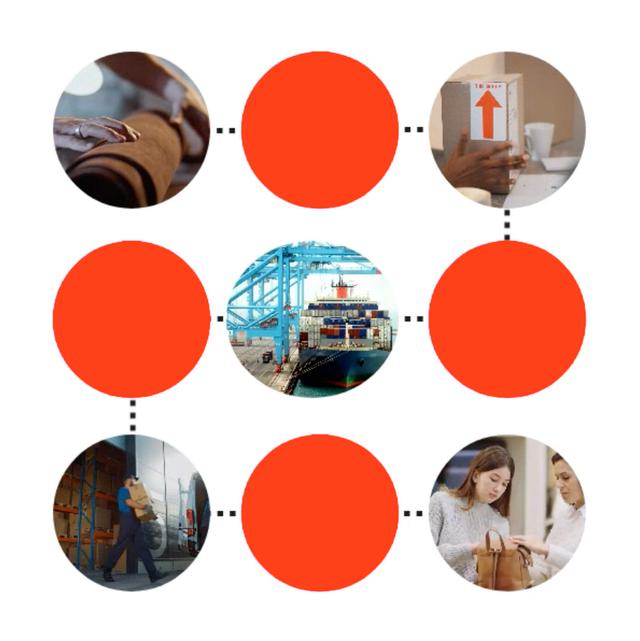
Retail Management
Mojix Retail
Retail visibility to boost profits and streamline operations

Maximize profitability through smarter, more efficient retail supply chain operations, higher customer satisfaction, and optimized decision making.
The Mojix Retail solution provides visibility, management, and intelligence to transform your retail inventory operations from distribution center to storefront, and at every step along the way.
98%+
inventory accuracy
67%+
reduction in safety stock costs
90%+
faster stock receiving processes
Maximize profits and efficiency through total inventory visibility
Maximize profits and efficiency through total inventory visibility
When it comes to succeeding in retail, inaccurate product visibility can kill profits. Mojix Retail delivers detailed item and lot level visibility, from supplier to storefront. Mojix Retail provides insights to help reduce inventory waste and shrinkage, avoid misallocation, and reduce excess safety spending. RFID tracking and labeling, with intelligent exception handling, slashes costs associated with manual inventory receiving and traditional inventory checks.

Elevate customer satisfaction and brand reputation
Elevate customer satisfaction and brand reputation
Seeing your retail supply chain and in store inventory with clarity makes it possible to deliver a significantly better customer experience. Mojix Retail virtually eliminates cancelled or diverted customer orders related to inventory discrepancies, delivering a better omnichannel experience. When customers buy or browse online and visit the local store to pick up or purchase, they shop confidently knowing that the product inventory they see – and you have on-hand – are the same.

Reduce total cost of labor and inventory errors through automation
Reduce total cost of labor and inventory errors through automation
Whether receiving products or keeping track of products on-hand, traditional retail inventory management is fraught with human labor to keep things straight. Mojix Retail simplifies inventory and receiving functions, using advanced RFID tagging to identify discrepancies instantly while reducing the costs and downtime required to do regular physical count inventory checks. As a result, Mojix Retail customers can realize up to 99% inventory accuracy.

65%+
reduction in time required to locate in-store stock
Mojix Retail Platform
Mojix Retail Platform
Delivered as a highly scalable, secure, and flexible software-as-a-service (SaaS) platform, Mojix integrates tagged and labeled supply chain data (including 1D/2D barcodes, RFID EPC, NFC, invisible ink, BLE MAC and more) to provide an enterprisegrade, single source of visibility. With Mojix Retail, customers simply see, know, and do more, faster and with higher efficiency. The Mojix platform supports multiple, industry-optimized capabilities including:
Automate item counts during receiving to determine actual number of goods received. Determine if inventory received matches what was ordered. Identify ‘unders’ and quickly handle the situation with the shipper or supplier. Obtain a more accurate calculation of shrinkage due to automated inventory capture and quicker identification of discrepancies.

Efficient, frequent and accurate cycle accounts, integrated with ERP, WMS, and POS systems, reflect true inventory levels and provide instant status. Run frequent, true-up inventory checks in minutes instead of waiting 6 months for expensive inventory physical counts that take hours to complete. Quickly identify items most affected by shrinkage and implement measures to reduce it through RFID-enabled security, alarm systems, and better tools to support employees.

Intuitive in-store applications make it easy to receive stock, manage any exceptions, and verify inventories for accurate view of goods in store. Stock finding features help staff locate products on the floor and in the storeroom quickly to deliver an exceptional customer experience.

Integration with POS, ERP, and other systems updates inventory accounting for sales/transfers to reduce cost to serve, cash on hand, and improve overall customer experience. Reduce negative consequences of shrinkage – NOSBOS, stockouts, and more to delight customers with the best product availability insights.


Better visibility, intelligence, and automation unlocks better retail business outcomes
With real-time, granular visibility of everything across your retail supply chain and stores, you can efficiently deliver on your promise to customers better, faster, and more profitably.
Brands making strides in retail with Mojix Retail™
Brands making strides in retail with Mojix Retail™
3% revenue increase
Reducing NOSBOS from 11.5% to 1.5% improved conversions by 0.4%… Resulting in a 3% increase in revenue. Replenishments are made every hour.
150% sales increase
Online sales increased by 150% and we managed to reduce safety stock from 6:1 to 2:1.
Put an end to inventory chaos
Put an end to inventory chaos
Simplify your processes and empower your workforce with Mojix Retail’s input-agnostic, easily integrated traceability solution.
Improve operational efficiency and demand planning
Maintain the availability of products on the sales floor
Achieve more effective replenishment (avoid NOSBOS)
Increase sales and improve omnichannel margins


Item-Level Traceability: The Key to Future-Proofing Food Brands
Learn more




